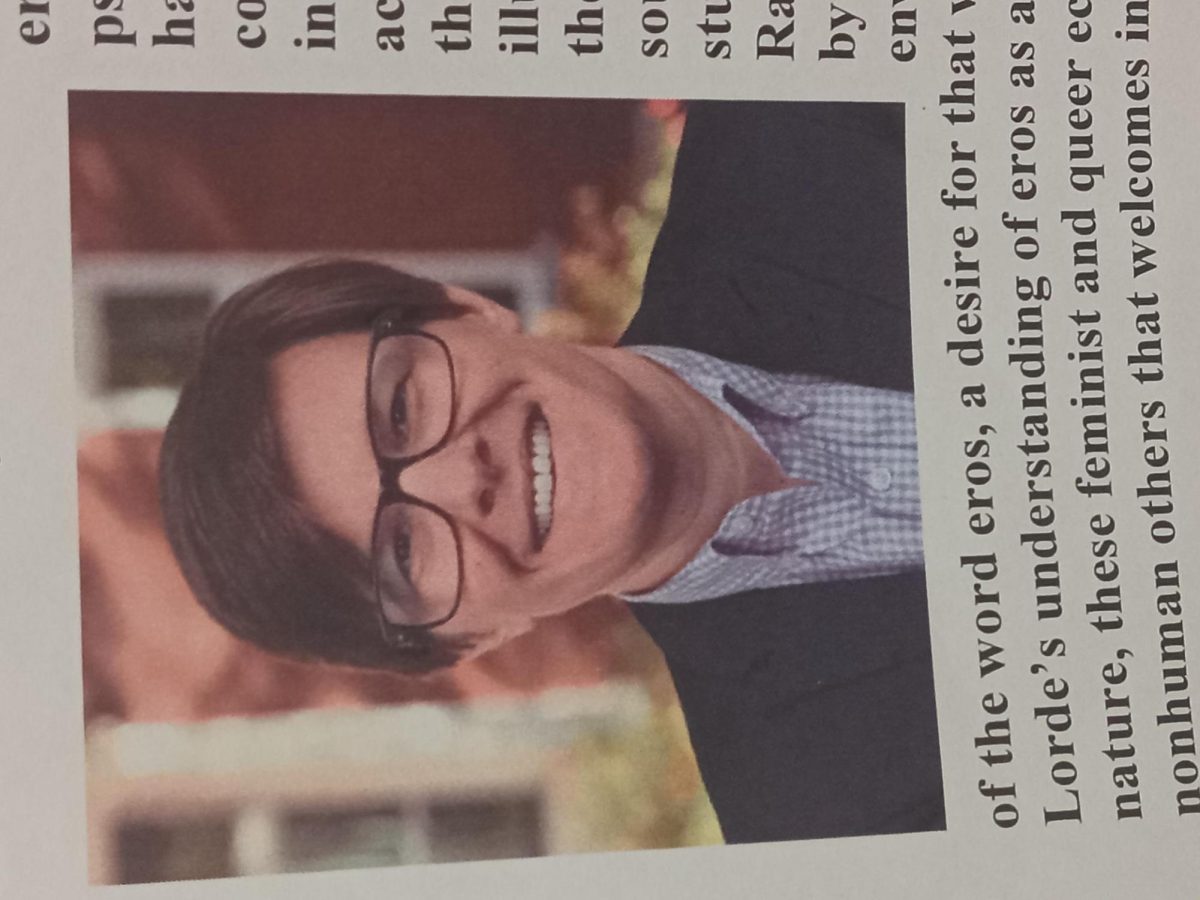Lauren Whitworth, a professor and interdisciplinary scholar at Agnes Scott College, presented an insightful keynote lecture at GC regarding her current book project, “Environmental Eros: Picturing Feminist, Queer and Trans Ecologies.” Whitworth combines her training in women’s, gender and sexuality Studies with her background in art history and film and media studies.
Whitworth has extensive research knowledge and interest in feminist and queer theory, film and visual culture, sexuality studies, specifically LGTBQ+ media studies, and ecocriticism. Her book focuses on environmental ethics and activism of 1970s ecological feminism, the Radical Faerie movement, and multiple contemporary environmental groups.
“Be open to research that takes you to places you really didn’t imagine going or projects,” Whitworth said. “I didn’t know very much about this until I got into it. I mean, I always cared about the environment, but I never imagined myself doing this work. And I would say another thing to take from this is that these groups are giving us models for ways to live more sustainably amongst each other. They’re giving us some good models on how to be good to other humans and non-human others.”
During her lecture at GC on March 28, Whitworth explained the background of her research regarding her new book project and the literature pieces she pulled information and inspiration from when writing and researching. She shared with the group how she first found her research passion and began her work on environmental humanity projects when she was an undergrad student at the University of Georgia.
A large part of Whitworth’s work focuses on contemporary environmental groups and their past and current influence.
“I think we can learn a lot by looking at their beliefs and things they didn’t take into account, like some of them didn’t have a very intersexual lens,” Whitworth said. “They didn’t, and they should have said, ‘Why are most of us white in this particular group?’ and we have that knowledge and can do it even better. But they also have some things to offer us as far as how they viewed nature, the connections they made between sexuality and gender and spirituality.”
Whitworth had many enthusiastic audience members who left her lecture feeling as though they now have extra knowledge when it comes to environmental injustice and the alternate perspectives.
“When females or women are associated with nature, that’s been one of my favorite topics,” said Olivia McDuffie, a master’s English literature student. I love when that pops up in poems and stuff, so I was interested in that.”
The lecture was able to cover a wide variety of topics that have impacted Whitworth’s research and drew in the attention of others.
“I personally already have, like, a pretty strong focus on the environment in my work, so it’s really interesting to see alternative perspectives,” said Anna Durden, a master’s English literature student. “And to continue to expand this, like, environmental-injustice idea of approaching media, and specifically literature for me, attending a keynote speaker gives me something extra I can have in my pocket.”
Whitworth’s lecture was very insightful, and she will hopefully be back to GC in the future to share more exciting knowledge.


